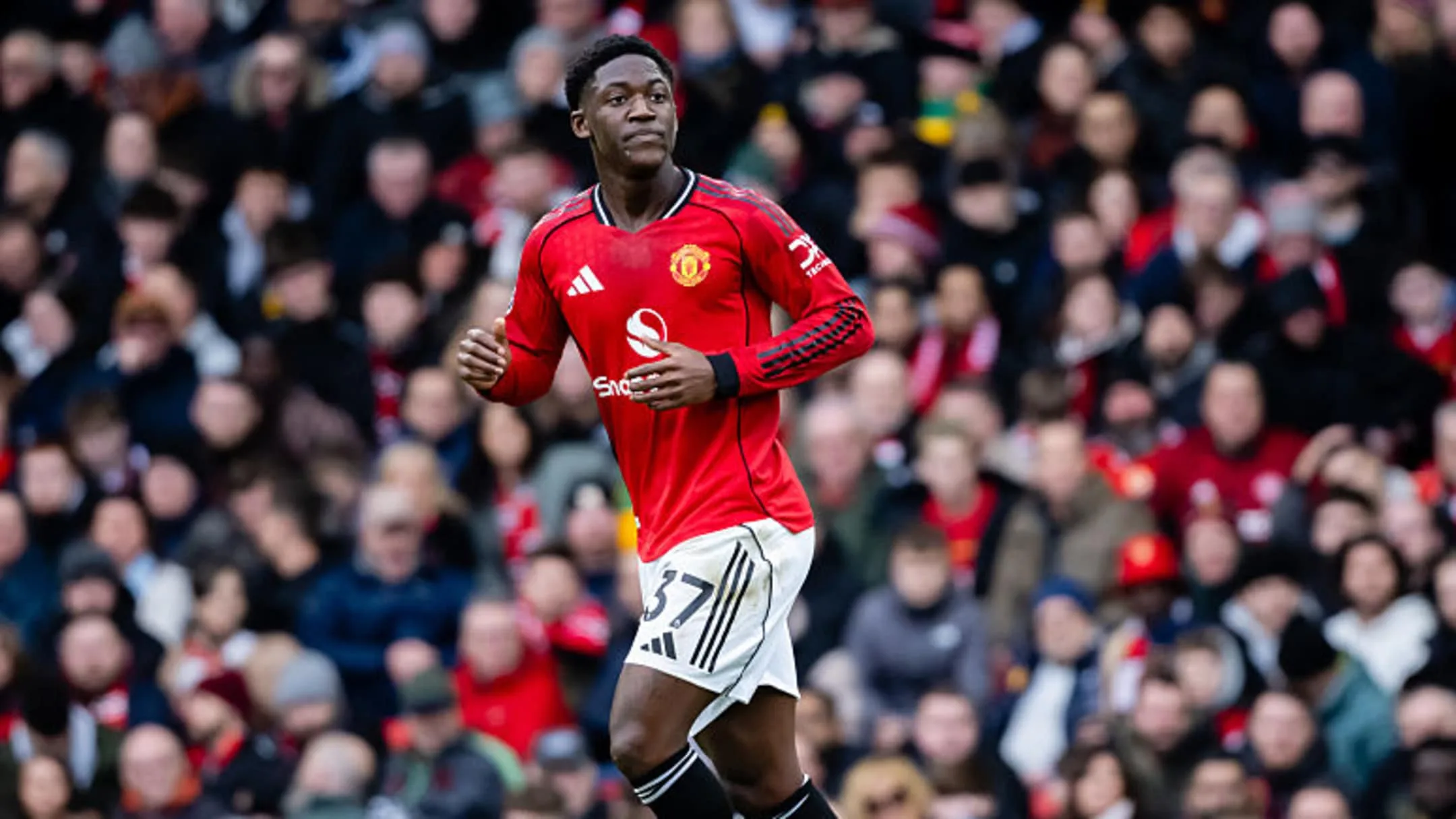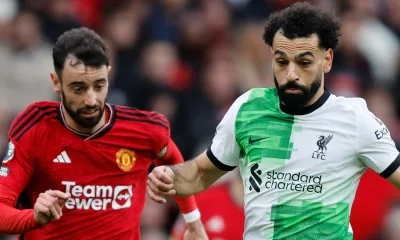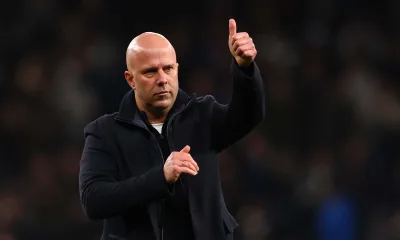Analytics & Stats
Chelsea lead world rankings as the 30 most expensive squads are revealed
Chelsea top the global squad valuations at €1.314 billion; 17 of the top 30 squads are Premier League

A recent report ranks the 30 most expensive squads in world soccer and places Chelsea at the top with a total squad cost of €1.314 billion. Manchester City follow in second on €1.128 billion, while Manchester United sit third at €1.071 billion.
Liverpool are fourth with a squad valuation of €1.065 billion, marginally ahead of Arsenal on €1.001 billion. Tottenham Hotspur drop below the €1 billion mark but remain high on the list with €974 million. Paris Saint-Germain are seventh at €873 million.
Real Madrid are listed on €854 million, with Newcastle United close behind on €816 million. There is a notable fall to Atlético Madrid in 10th, whose squad total is €572 million. The full top 10 reads: Chelsea (€1.314 billion), Man City (€1.128 billion), Man Utd (€1.071 billion), Liverpool (€1.065 billion), Arsenal (€1.001 billion), Tottenham (€974 million), PSG (€873 million), Real Madrid (€854 million), Newcastle (€816 million), Atlético Madrid (€572 million).
The wider top 30 includes a mixture of English, Spanish, German, Italian, French and Saudi Arabian teams. Los Blancos boast a total spend of €854 million, close to double that of Barcelona, who sit 15th at €463 million.
Saudi Arabian side Al Hilal are the only non-European club in the top 30. The report notes that Al Hilal added Darwin Núñez and Theo Hernández to a squad that already included Rúben Neves, Malcom and Sergej Milinković-Savić.
Of the 30 richest squads, 17 are from the Premier League. Only the newly promoted trio of Sunderland, Leeds United and Burnley fail to make the cut. There are three Spanish sides in the top 30 and four each from Germany and Italy, while France and Saudi Arabia are each represented once.
The list underscores the concentration of transfer investment across a relatively small group of clubs and highlights the financial gap between those teams and the rest of world soccer’s top 30.
Analytics & Stats
Salah becomes first player with 152 goal contributions at one Premier League stadium
Salah reached 152 goal contributions at one Premier League ground, overtaking Henry and Rooney. 2026

Mohamed Salah set a new Premier League benchmark when he reached 152 goal contributions at a single stadium during Liverpool’s 4–1 thumping of Newcastle United on Saturday. That total places him ahead of the previous record of 151, which was held jointly by Thierry Henry and Wayne Rooney at Highbury and Old Trafford respectively.
Salah’s tally at that ground is compiled from 107 goals and 45 assists, producing the 152 figure that now stands alone at the top. Thierry Henry’s total there was 114 goals and 37 assists for 151, while Wayne Rooney recorded 101 goals and 50 assists for the same combined total.
Mohamed Salah
Goals 107
Assists 45
Total 152
Thierry Henry
Goals 114
Assists 37
Total 151
Wayne Rooney
Goals 101
Assists 50
Total 151
Beyond the stadium-specific milestone, Salah remains on course for other career landmarks in the Premier League. He is fourth on the all-time scoring list with 190, 18 behind Wayne Rooney’s 208 and behind Alan Shearer and Harry Kane. Whether he can move up into third depends on form and remaining fixtures: Liverpool have 14 Premier League games left and Salah has scored four goals in 16 outings this season.
Player
Goals
Alan Shearer 260
Harry Kane 213
Wayne Rooney 208
Mohamed Salah 190*
Andrew Cole 187
*stats correct as of Feb. 1, 2026
The past 18 months have been full of broken records for Salah and have strengthened his standing in Premier League history. The clock is ticking for Salah and it is not yet clear how long he has left to rack up the numbers. His current contract says 18 months but his tense relationship with manager Arne Slot may suggest otherwise.
Analytics & Stats
Salah sets unique Premier League record with 152 goal contributions at one ground
Salah reached 152 goal contributions at one ground, surpassing Henry and Rooney’s 151 totals Feb. 1.

Mohamed Salah became the first player to register 152 goal contributions at a single Premier League stadium during Liverpool’s 4–1 thumping of Newcastle United on Saturday. That total moves him past the previous high of 151, a mark held jointly by Thierry Henry and Wayne Rooney at Highbury and Old Trafford respectively.
Salah’s landmark is the product of sustained output for Liverpool over several seasons. The numbers at that ground break down as 107 goals and 45 assists, producing a combined total of 152. By comparison, Thierry Henry recorded 114 goals and 37 assists for 151, while Wayne Rooney had 101 goals and 50 assists, also 151.
Salah
Goals
Assists
Total
Mohamed Salah
107
45
152
Thierry Henry
114
37
151
Wayne Rooney
101
50
151
Beyond this stadium-specific record, Salah is also tracking career scoring milestones in the league. He sits fourth on the all-time Premier League scorers list on 190, 18 behind Wayne Rooney’s 208 return and behind Alan Shearer and Harry Kane. Whether he can climb into third remains an open question given Liverpool have 14 Premier League matches left and Salah has scored four goals in 16 appearances this season.
Player
Goals
Alan Shearer
260
Harry Kane
213
Wayne Rooney
208
Mohamed Salah
190*
Andrew Cole
187
*stats correct as of Feb. 1, 2026
The past 18 months have been full of broken records for Salah, reinforcing his standing in Premier League history. The clock is ticking for Salah and it is not yet clear how long he has left to rack up the numbers. His current contract says 18 months but his tense relationship with manager Arne Slot may suggest otherwise.
Analytics & Stats
Neville Criticises Amorim as Mainoo Rises in Carrick’s Midfield Plan
Neville slams Amorim’s handling of Mainoo as Carrick’s system brings midfield balance for United plus

Gary Neville used blunt language to describe how Kobbie Mainoo was managed at the start of the season, arguing the midfielder was mishandled before finding form under Michael Carrick.
“I must admit, I never liked the handling of Mainoo,” Neville said on the new episode of Stick to Football, accusing Ruben Amorim of damaging the player when it became clear he would not be selected alongside Bruno Fernandes. “I thought it was rubbish,” he added. “It killed him publicly. And then he never put him in the team at all, apart from [against] Grimsby. That was nearly pushing a talented player out of the club before he even really had a chance to perform. You look at him now in these two matches, you think, how could that be? How could [Manuel] Ugarte [be picked ahead of him]?”
Roy Keane welcomed Mainoo’s recent performances. “You couldn’t ask for any more,” he said, adding that the overall turnaround had been “brilliant.” He also warned that conclusions should be cautious given the sample size: “It is only two games,” he warned, wanting to see more.
Paul Scholes praised the renewed midfield balance once Carrick adjusted the system to include both Mainoo and Fernandes while Casemiro remained at No. 6. “Kobbie and Fernandes, they make your team play football,” Scholes said. “When they had just been doing it with Fernandes, they sent [one] to play. He didn’t really have anyone to play with. Now, Kobbie’s also got that ability to play with someone. It makes a big difference.”
Statistical snapshot from the two recent matches (Man City, Arsenal):
Minutes Played: 90, 90
Rating (Out of 10): 7.5, 6.9
Touches: 51, 54
Passing Accuracy: 91%, 86%
Passes into Final Third: 1, 4
Chances Created: 0, 2
Defensive Contributions: 9, 6
Mainoo’s club revival raises questions about his international prospects. The 20-year-old was instrumental as England reached the Euro 2024 final and has the opportunity to force his way back into the national squad for the World Cup if his run of form continues.



















